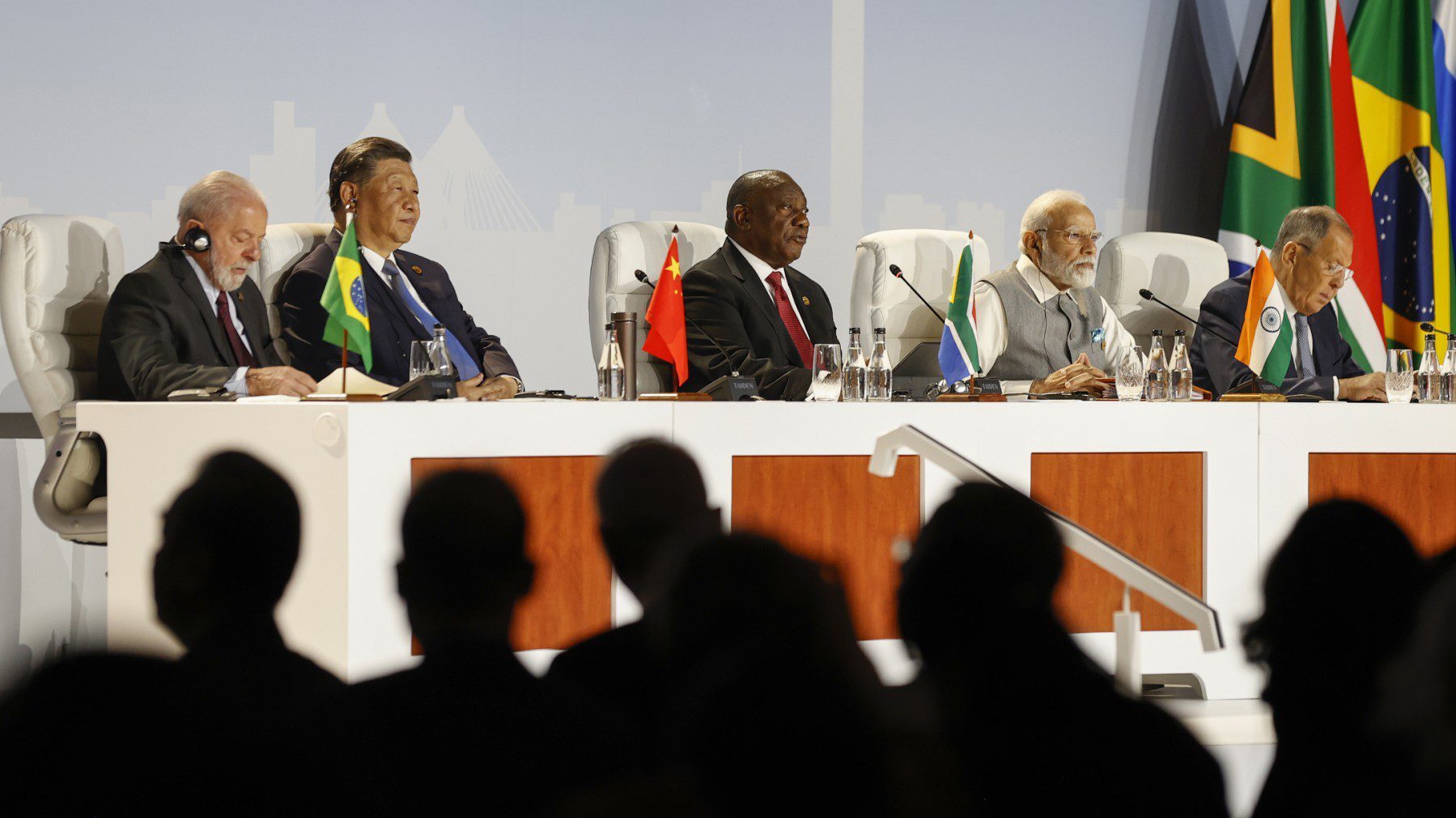
SA President Cyril Ramaphosa (center) announcing the outcomes of the Summit. The others (from left to right): President Luiz Inacio Lula da Silva (Brazil), President Xi Jinping (China), Prime Minister Narendra Modi (India), and Foreign Minister Sergei Lavrov (Russia).
Photo: PHILL MAGAKOE / AFP
Six countries, including geopolitical rivals Iran and Saudi Arabia, are officially invited to join BRICS in the first phase of the economic group’s enlargement process, South African President Cyril Ramaphosa announced during the BRICS’ Johannesburg Summit’s final day on Thursday, August 24th.
“As the five BRICS countries, we have reached agreement on the guiding principles, standards, criteria, and procedures of the BRICS expansion process,” Ramaphosa said. “We have consensus on the first phase of this expansion process, and further phases will follow.”
The six new members will be Argentina, Egypt, Ethiopia, Iran, Saudi Arabia, and the United Arab Emirates. According to Ramaphosa, their membership will come into effect in less than five months, on January 1st, 2024, which will mark the first time any new countries are joining the formation since 2011, when South Africa became the fifth member after joining Brazil, Russia, India, and China.
XV BRICS SUMMIT 2023 Media Conference #BRICSSummit2023 https://t.co/b1SufIVfJN
— Cyril Ramaphosa 🇿🇦 (@CyrilRamaphosa) August 24, 2023
As we wrote in our pre-summit explainer, there were 23 official applicants, and 16 additional countries considering applying in the near future. The question of how many of the applicants could be granted membership in the first phase was the greatest issue of the Summit, as China was pushing for as many as possible, but India and Brazil trying to keep the process more gradual in order not to change the internal power dynamics too much.
Nonetheless, Ramaphosa reassured every other applicant that they, too, will have their chance in further enlargement phases. To make the process even smoother, Ramaphosa said the leaders have tasked their foreign ministers to further develop the “BRICS partner country model” as well as a list of prospective members and prepare a report by next year’s Summit.
The host also hailed the adoption of the Second Johannesburg Declaration, which underlined the BRICS’ commitment to continued efforts to “amplify the voice of the global south,” as well as calling for “a comprehensive reform of the UN, including the Security Council, with a view of making it more democratic, representative, effective, and efficient.”
Reforming global governance for the benefit of the developing world (by breaking the West’s institutional and economic dominance) has always been one of the explicitly stated goals of BRICS. Now, with eleven members, they might be closer to achieving it. Nonetheless, the expansion does not mean BRICS would take over the world overnight, as more members also mean more venues for disagreement.
One obvious example would be Iran and Saudi Arabia, the rival regional powers who have been engaged in their own version of the Cold War—encompassing the entire Middle East—for decades. Tehran and Riyadh joining the BRICS together definitely signals the beginning of a new chapter in their relationship, but it remains to be seen if they can truly work together within the group.
Regardless of any future hardships, this enlargement is truly a historic step for BRICS toward becoming the true embodiment of the “global south” and eventually dethroning the West in its effort to remake world governance.
“Through this Summit, BRICS has embarked on a new chapter in its effort to build a world that is fair, a world that is just, a world that is also inclusive and prosperous,” President Ramaphosa said in his closing remarks.
